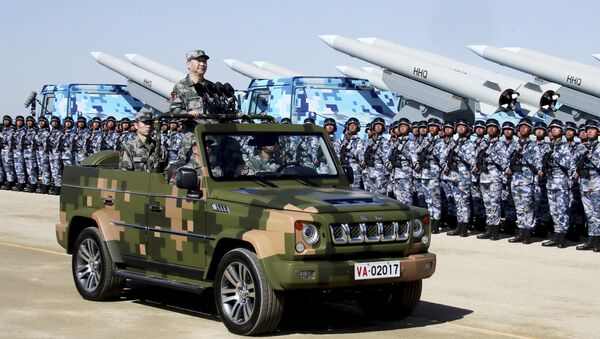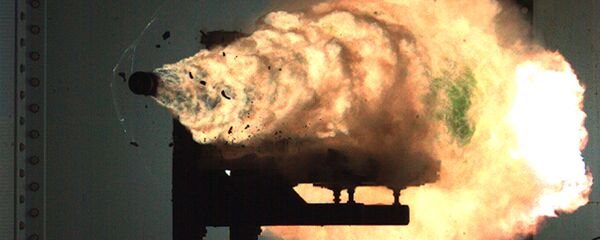Such media reports are not true," the ministry's information office said in statement.
South Korean newspaper Chosun Ilbo had reported on Monday that some 30,000 PLA troops had been transferred to the border to prepare for a possible war and, further, that new missile defense batteries are being deployed "near North Korean reservoirs by the Apnok and Duman rivers." China's Ministry of National Defense's Information Office denied both that troops had been transferred and that new missile defense batteries had been emplaced along the border.
The Chosun Ilbo report was based on information gleaned from a senior source working for the Democratic People's Republic of Korea during a trip by that source to China. The source said that the deployments started at the end of 2017. "Chinese troops in the border area could be swept away if the North tore down the banks of the reservoirs or they were destroyed by missiles or airstrikes," Chosun Ilbo reported, citing the DPRK source. Some North Koreans apparently saw the relocation of military assets as a provocation — the relocation that Beijing says never took place.
The Chinese Ministry of National Defense's Information Office went on to cite Sr. Col. Wu Qian, spokesperson for the MND, who said last month, "When President Xi Jinping visited the United States in 2015, he said that it is always the right time to do what is right," adding that, "we hope that the tension will be eased and peace and stability will be secured on the Korean Peninsula."
On January 12, the PLA Daily published a commentary warning that "war is not far from us."
"Regional situations around China are complex and unstable, and dangers are hiding under the peace. China cannot afford a military failure, so we must be fully aware of potential crises and be prepared for battle at all times," the country's top military newspaper added, as quoted by the Global Times.
The Daily NK, an outlet based in Seoul, reported on January 3 that at the end of December, dozens of military trucks had been spotted en route to the North Korean border. Civilians were apparently stunned by the size of the convoy passing through Yanji Province heading towards the North Korean border, but they traveled at night to avoid attention.
"There were so many trucks it caused congestion on the road. There has never been a situation like this before where so many trucks have been present in the Yanji area near the border," the Daily NK quoted a source as saying.


![HongQi 9 [HQ-9] launcher pictured in Beijing during the 60th anniversary parade dedicated to China's founding, 2009. HongQi 9 [HQ-9] launcher pictured in Beijing during the 60th anniversary parade dedicated to China's founding, 2009. - Sputnik International](https://cdn1.img.sputnikglobe.com/img/101764/75/1017647515_0:198:1200:726_600x0_80_0_0_dc27c828688f1c9aa5a4e17592e2a61f.jpg)

